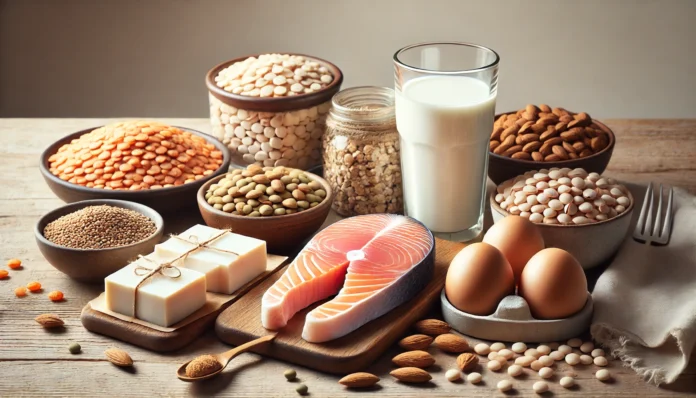Introduction
Protein is an essential macronutrient that plays a vital role in building and repairing tissues, supporting immune function, and maintaining overall health. Despite its importance, many people may not consume enough protein in their daily diets, leading to various physical and mental symptoms. In this article, we’ll explore eight key signs that your body might be deficient in protein and how to address them effectively.
1. Unexplained Fatigue and Weakness
Protein provides the building blocks for enzymes and hormones that regulate energy production. A lack of protein can lead to reduced energy levels, causing fatigue and muscle weakness. Over time, this can impair daily activities and lower productivity.
What to do: Include protein-rich foods like eggs, lean meats, fish, and legumes in your diet to restore energy levels.
2. Frequent Infections
Protein is crucial for producing antibodies and other immune system components. Without sufficient protein, your body may struggle to fight off infections, leaving you more susceptible to colds, flu, and other illnesses.
What to do: Boost your intake of protein-packed foods such as chicken, yogurt, and tofu to strengthen your immune defenses.
3. Hair, Skin, and Nail Problems
Protein deficiency can manifest in brittle nails, thinning hair, and dry, flaky skin. Keratin, a protein, is essential for maintaining healthy hair and nails, while collagen, another protein, keeps the skin firm and elastic.
What to do: Incorporate collagen-rich foods like bone broth and protein sources like nuts, seeds, and seafood to improve hair, skin, and nail health.
4. Loss of Muscle Mass
Muscles are primarily made of protein, and a deficiency can lead to muscle wasting or loss of strength. This is particularly noticeable in older adults or those who engage in regular physical activity.
What to do: Ensure you consume high-quality protein sources like whey protein, turkey, and beans to preserve muscle mass.
5. Slow Wound Healing
Protein plays a key role in repairing tissues and healing wounds. A lack of protein can result in slower recovery from injuries or surgeries, as the body lacks the necessary building blocks for repair.
What to do: Focus on protein-dense meals, including quinoa, lentils, and eggs, to support the healing process.
6. Increased Appetite or Cravings
Protein helps regulate hunger hormones and promotes satiety. A diet low in protein may leave you feeling constantly hungry or craving unhealthy snacks, particularly sugary or carb-rich foods.
What to do: Add protein to every meal, such as Greek yogurt for breakfast, grilled chicken for lunch, or lentil soup for dinner, to keep cravings at bay.
7. Swelling or Edema
Protein helps maintain fluid balance in the body by regulating albumin levels. A deficiency can lead to fluid accumulation, causing swelling in the hands, feet, or face, a condition known as edema.
What to do: Incorporate protein-rich dairy, fish, or tofu into your diet to address fluid imbalances.
8. Mood Changes and Brain Fog
Protein is necessary for producing neurotransmitters like serotonin and dopamine, which influence mood and cognitive function. A deficiency can lead to irritability, mood swings, and difficulty concentrating.
What to do: Include protein sources such as salmon, eggs, and nuts to improve mood and mental clarity.
Conclusion
Protein is indispensable for overall health, and a deficiency can lead to a range of physical and mental symptoms. If you notice any of these signs, consider evaluating your diet and making adjustments to include more protein-rich foods. A balanced diet that meets your protein needs not only helps you feel better but also supports long-term health and vitality.
Remember, consult a healthcare provider or nutritionist for personalized advice if you suspect a significant protein deficiency.
